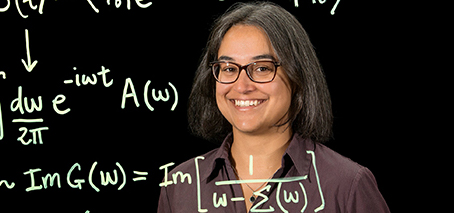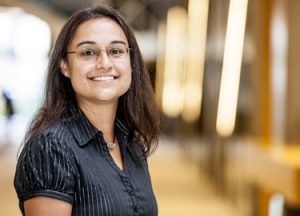FLEET’s Meera Parish has been named 2019 Outstanding Referee, the only one in Australia, by the influential American Physical Society (APS).
The APS selected 143 Outstanding Referees for 2019, each of whom have demonstrated exceptional work in the assessment of manuscripts submitted to the Physical Review journals.
The Outstanding Referee program recognises approximately 150 currently active referees each year, and this year was made from over 71,000 referees who have been called upon to review manuscripts.
Comparable to Fellowship in the APS and other organizations, this is a lifetime award.
The 2019 honorees come from 29 different countries, with large contingents from the U.S., Germany, U.K., Canada, and France. Meera is the only Australian on the list.
The efforts of these individuals not only keep the standards of the journals at a high level, but in many cases also help authors improve the quality and readability of their articles—even those that are not published by APS. The Outstanding Referees are to be congratulated and thanked for their outstanding service to the physics community.
-American Physical Society
The American Physical Society (APS) is a nonprofit membership organisation working to advance and diffuse the knowledge of physics through its outstanding research journals, scientific meetings, and education, outreach, advocacy, and international activities.
Dr Meera Parish is a theoretical physicist investigating and mathematically describing the behaviour of large groups of interacting quantum particles, such as atoms or electrons, which can exhibit exotic behaviour, such as superfluidity where they flow without encountering resistance.
Dr Parish is the leading current researcher studying how such complex collective behaviour emerges from the properties of small groups of quantum particles (a field known as few-body systems).
Her work expands our fundamental knowledge of quantum physics in systems ranging from cold atomic gases to solid-state semiconductors, and has the potential to underpin a new generation of near-zero resistance, ultra-low energy electronic devices.
Within FLEET, Meera studies the robustness of excitonic superfluidity to an electron-hole density imbalance in bilayers in Research Theme 2. This work also focuses on determining whether any exotic forms of superfluidity (e.g. spatially modulated) can be realised. In Research Theme 3, she studies the impact of impurities dynamically coupled to a superfluid of paired fermions.


